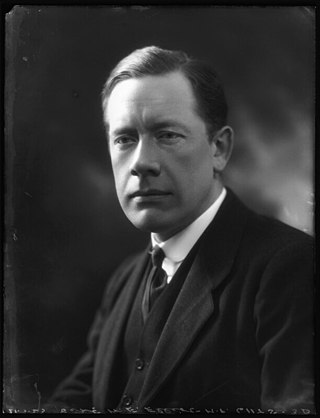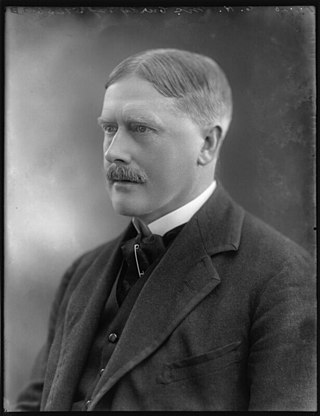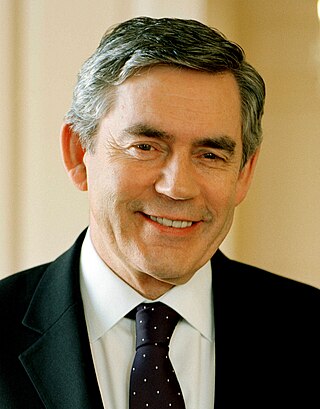
The secretary of state for war, commonly called the war secretary, was a secretary of state in the Government of the United Kingdom, which existed from 1794 to 1801 and from 1854 to 1964. The secretary of state for war headed the War Office and was assisted by a parliamentary under-secretary of state for war, a parliamentary private secretary who was also a member of parliament (MP), and a military Secretary, who was a general.
Minister of state is a designation for a government minister, with varying meanings in different jurisdictions. In a number of European countries, the title is given as an honorific conferring a higher rank, often bestowed upon senior ministers. In the United Kingdom and several other Commonwealth countries, "minister of state" is a junior rank subordinate to ministers of higher rank. In Brazil and Japan, all ministers of cabinet rank hold the title, while in Australia "minister of state" is the designation applied to all government ministers regardless of rank.
The secretary of state for the environment was a UK cabinet position, responsible for the Department of the Environment (DoE). Today, its responsibilities are carried out by the secretary of state for environment, food and rural affairs and the secretary of state for housing, communities and local government. The post was created by Edward Heath as a combination of the Ministry of Housing and Local Government, the Ministry of Transport and the Ministry of Public Building and Works on 15 October 1970. Thus it managed a mixed portfolio of issues: housing and planning, local government, public buildings, environmental protection and, initially, transport – James Callaghan gave transport its own department again in 1976. It has been asserted that during the Thatcher government the DoE led the drive towards centralism, and the undermining of local government. Particularly, the concept of 'inner cities policy', often involving centrally negotiated public-private partnerships and centrally appointed development corporations, which moved control of many urban areas to the centre, and away from their, often left-wing, local authorities. The department was based in Marsham Towers, three separate tower blocks built for the separate pre-merger ministries, in Westminster.

The Minister of Agriculture, Fisheries and Food was a United Kingdom cabinet position, responsible for the Ministry of Agriculture, Fisheries and Food. The post was originally named President of the Board of Agriculture and was created in 1889. In 1903, an Act was passed to transfer to the new styled Board of Agriculture and Fisheries certain powers and duties relating to the fishing industry, and the post was renamed President of the Board of Agriculture and Fisheries.

The minister of health is the minister of the Crown in the Canadian Cabinet who is responsible for overseeing health-focused government agencies including Health Canada and the Public Health Agency of Canada, as well as enforcing the Canada Health Act, the law governing Canada's universal health care system.

The attorney-general of Australia (AG) is the minister of state and chief law officer of the Commonwealth of Australia charged with overseeing federal legal affairs and public security as the head of the Attorney-General’s Department. The current attorney-general is Mark Dreyfus, who was chosen by prime minister Anthony Albanese on June 2022 following the 2022 federal election. By convention, the attorney-general is a lawyer.

The parliamentary under-secretary of state is the lowest of three tiers of government minister in the UK government, immediately junior to a Minister of State, which is itself junior to a Secretary of State.

Walter Elliot Elliot was a politician of Scotland's Unionist Party prominent in the interwar period. He was elected to the House of Commons of the United Kingdom in 1918, and besides an interval of months in 1923–24 and 1945–46, remained in parliament until his death. His Cabinet roles were as the Minister of Agriculture, Fisheries and Food in the National Government (1931–1935) of Ramsay MacDonald; as the Secretary of State for Scotland in the National Government (1935–1937) of Stanley Baldwin; and as Minister of Health in Neville Chamberlain's National Government (1937–1939) and the short-lived Chamberlain war ministry.

The Minister of Food Control (1916–1921) and the Minister of Food (1939–1958) were British government ministerial posts separated from that of the Minister of Agriculture. In the Great War the Ministry sponsored a network of canteens known as National Kitchens. In the Second World War a major task of the Ministry was to oversee rationing in the United Kingdom arising out of World War II. The Minister was assisted by a Parliamentary Secretary. The Parliamentary Under Secretary of State for Food and Animal Welfare was appointed at the Department for the Environment, Food and Rural Affairs to ensure the continued supply of sufficient food during the Brexit process.
A permanent secretary is the most senior civil servant of a department or ministry charged with running the department or ministry's day-to-day activities. Permanent secretaries are the non-political civil service chief executives of government departments or ministries, who generally hold their position for a number of years at a ministry as distinct from the changing political secretaries of state to whom they report and provide advice. The role originated in the civil service of the United Kingdom and has been adopted in several Commonwealth countries as well as other countries influenced by the Westminster system.

Charles Albert McCurdy was a British Liberal Member of Parliament and minister in the Lloyd George Coalition Government. He was made a member of the Privy Council in 1920.
The Cabinet of Malaysia is the executive branch of the Government of Malaysia. Led by the Prime Minister, the cabinet is a council of ministers who are accountable collectively to the Parliament. According to the Article 43 of the Federal Constitution, members of the Cabinet can only be selected from members of either houses of Parliament. Formally, the Yang di-Pertuan Agong appoints all Ministers on the advice of the Prime Minister. The constitution is amended by repealing the Clause (8) of Article 43, enabling a person who is a member of State Legislative Assembly to continue to serve even while serving as a minister or deputy minister in the cabinet. Ministers other than the Prime Minister shall hold office during the pleasure of the Yang di-Pertuan Agong, unless the appointment of any Minister shall have been revoked by the Yang di-Pertuan Agong on the advice of the Prime Minister but any Minister may resign from office. In practice, the Yang di-Pertuan Agong is obliged to follow the advice of the Prime Minister on the appointment and dismissal of ministers.

Raffaele Costa is an Italian politician. He was the president of the Province of Cuneo from June 2004 to June 2009. He was previously a member of the Italian Chamber of Deputies representing the Italian Liberal Party and later Forza Italia between 1976 and 2003, and was also a member of the European Parliament of the European People's Party until June 2004.

Vilas Bhaurao Muttemwar is an Indian politician from Maharashtra belonging to the Indian National Congress who served as a member of the 7th, 8th, 10th, 12th, 13th, 14th and 15th Lok Sabha representing the Nagpur Lok Sabha constituency.

The Ministry of External Affairs of India is tasked with formulating and implementing Indian foreign policy, in tandem with the repatriation of Indian citizens in danger abroad and the extradition of fugitives. The Ministry of External Affairs is steered by the Minister of External Affairs, a minister in the PM's Cabinet.

Peter Bleser is a German politician of the Christian Democratic Union (CDU) who served as a member of the Bundestag from 1990 until 2021, representing Mosel/Rhein-Hunsrück.

The 2010 Dissolution Honours List was issued on 28 May 2010 at the advice of the outgoing Prime Minister, Gordon Brown. The list was gazetted on 15 June.

The third Blair ministry lasted from May 2005 to June 2007. The election on 5 May 2005 saw Labour win a historic third successive term in power, though their majority now stood at 66 seats – compared to 167 four years earlier – and they failed to gain any new seats. Blair had already declared that the new term in parliament would be his last.
The 1970 Dissolution Honours List was issued on 2 June 1970 to mark the dissolution of the United Kingdom parliament prior to the 1970 general election.












